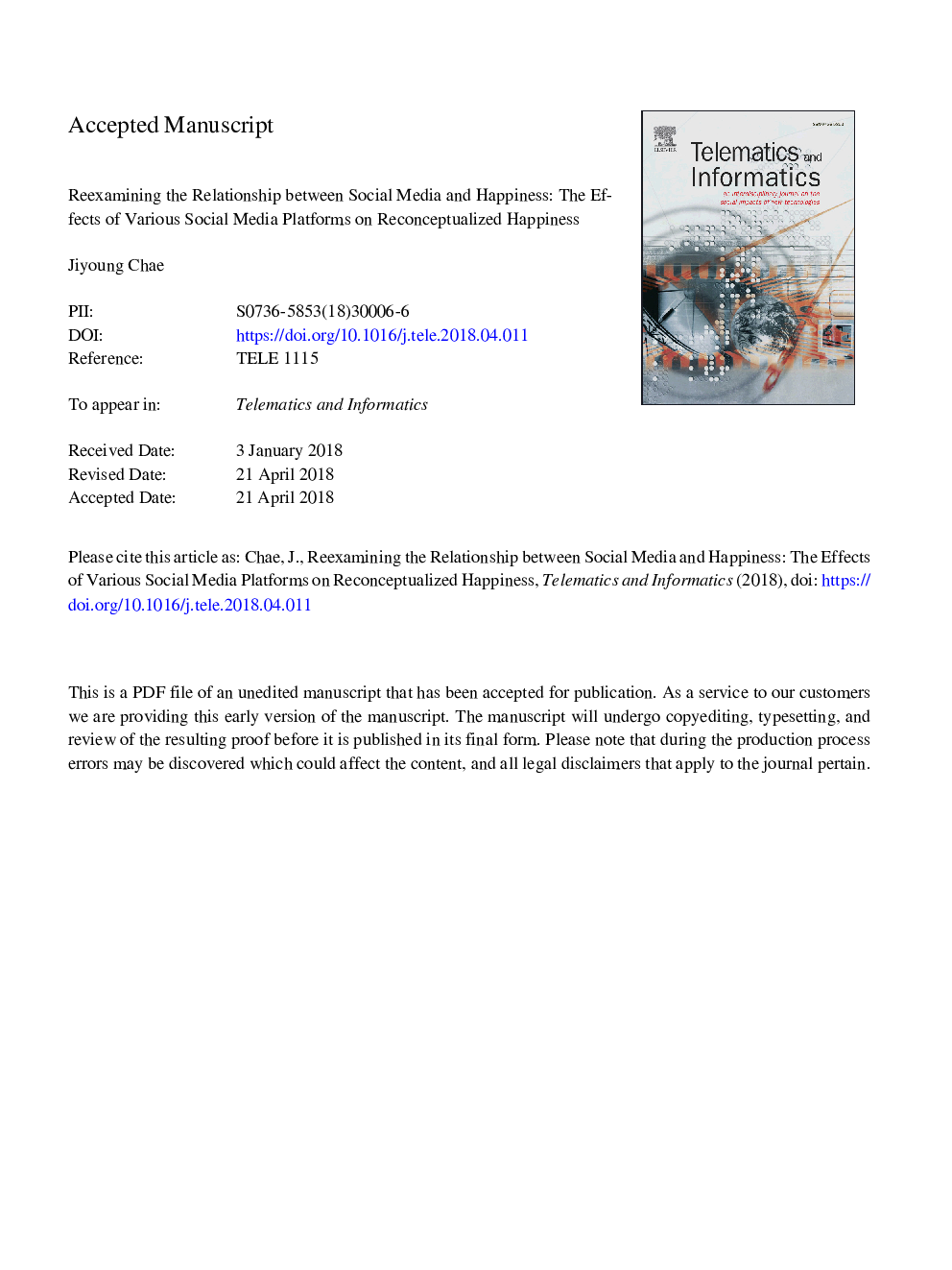| Article ID | Journal | Published Year | Pages | File Type |
|---|---|---|---|---|
| 6889481 | Telematics and Informatics | 2018 | 33 Pages |
Abstract
The current study reexamined the relationship between social media use and happiness by broadening the scope of social media and rethinking the conceptualization of happiness. Specifically, this study included platforms other than Facebook and tested differential effects of each platform. Because happiness is not entirely relative, it was hypothesized that social comparison would influence only relative happiness, which is only one part of overall happiness. A two-wave longitudinal survey among Korean females revealed that the use of blogs, Instagram, and LinkedIn is positively associated with social comparison at Wave 1 (W1), whereas Twitter is negatively associated. LinkedIn use was most strongly associated with social comparison. In turn, social comparison at W1 negatively predicted relative happiness at W2 (“I am happier than my friends”) but did not predict overall happiness at W2. Social media may lead us to believe that other people's lives are better through social comparison. However, such comparison influences only part of overall happiness or life satisfaction. Without social comparison, social media have the potential to make us happier.
Related Topics
Physical Sciences and Engineering
Computer Science
Computer Networks and Communications
Authors
Jiyoung Chae,
